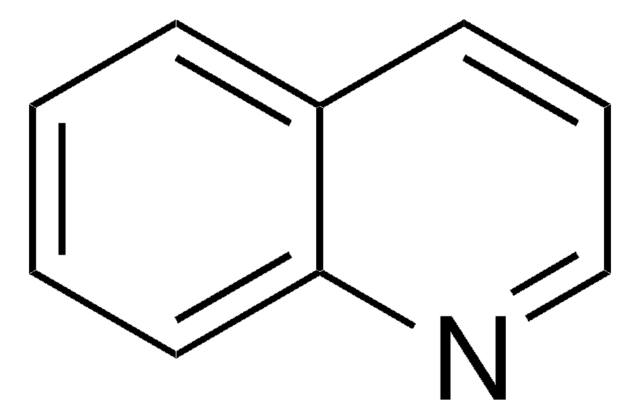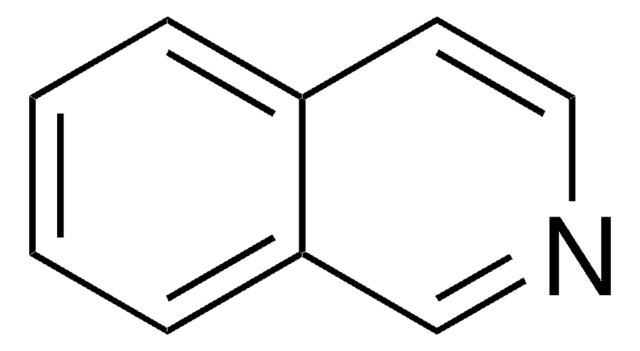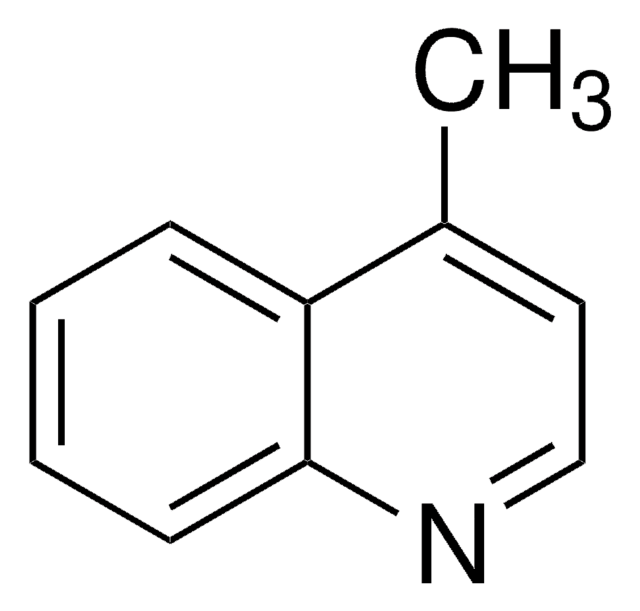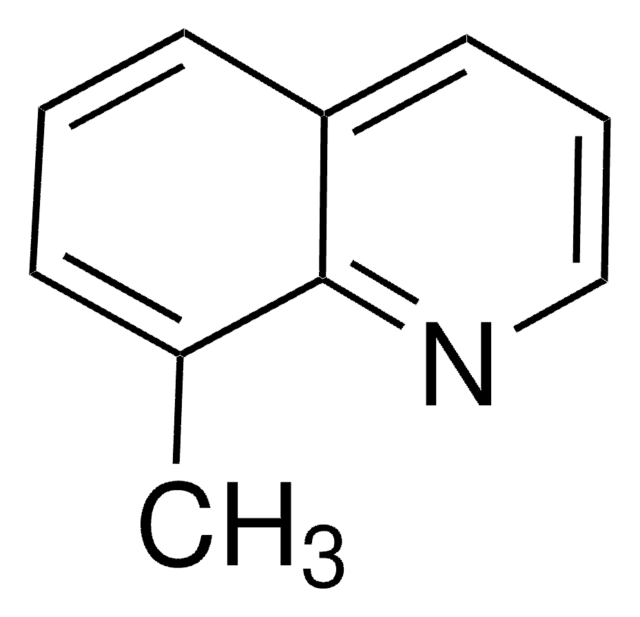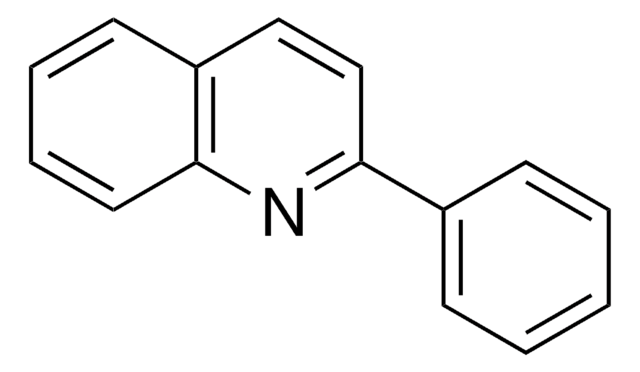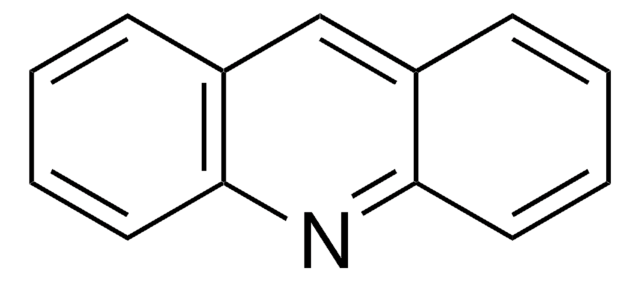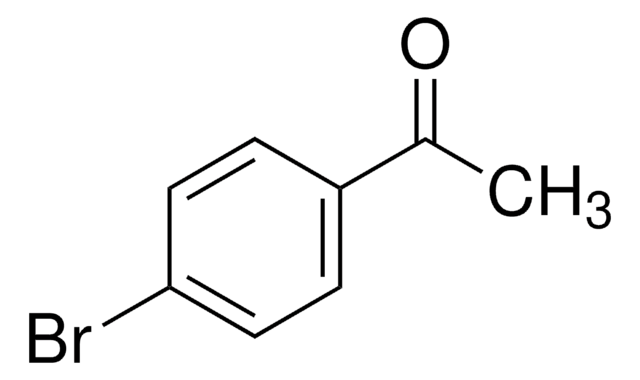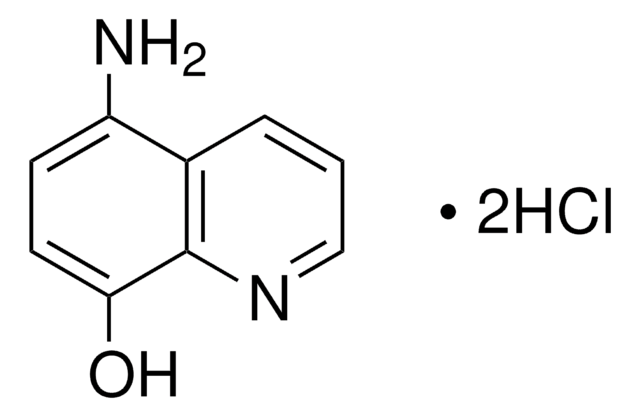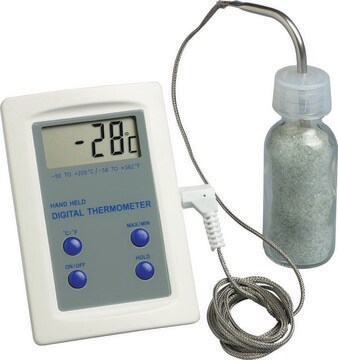129895
3-Methylisoquinoline
98%
Iniciar sesiónpara Ver la Fijación de precios por contrato y de la organización
About This Item
Fórmula empírica (notación de Hill):
C10H9N
Número de CAS:
Peso molecular:
143.19
Número CE:
Número MDL:
Código UNSPSC:
12352100
ID de la sustancia en PubChem:
NACRES:
NA.22
Productos recomendados
Ensayo
98%
bp
251 °C (lit.)
mp
63-65 °C (lit.)
cadena SMILES
Cc1cc2ccccc2cn1
InChI
1S/C10H9N/c1-8-6-9-4-2-3-5-10(9)7-11-8/h2-7H,1H3
Clave InChI
FVVXWRGARUACNW-UHFFFAOYSA-N
Información sobre el gen
human ... CYP1A2(1544)
Descripción general
The metabolites of 3-methylisoquinoline were separated by adsorption and reversed-phase high-performance liquid chromatography (HPLC).
Aplicación
3-Methylisoquinoline was used to prepare 3-aminoisoquinoline.
Palabra de señalización
Warning
Frases de peligro
Consejos de prudencia
Clasificaciones de peligro
Eye Irrit. 2 - Skin Irrit. 2 - STOT SE 3
Órganos de actuación
Respiratory system
Código de clase de almacenamiento
11 - Combustible Solids
Clase de riesgo para el agua (WGK)
WGK 3
Punto de inflamabilidad (°F)
Not applicable
Punto de inflamabilidad (°C)
Not applicable
Equipo de protección personal
dust mask type N95 (US), Eyeshields, Gloves
Elija entre una de las versiones más recientes:
¿Ya tiene este producto?
Encuentre la documentación para los productos que ha comprado recientemente en la Biblioteca de documentos.
The Preparation of 3-Aminoisoquinoline and Related Compounds1.
Journal of the American Chemical Society, 73(2), 688-689 (1951)
C Stubley et al.
Journal of chromatography, 177(2), 313-322 (1979-09-21)
Adsorption and reversed-phase high-performance liquid chromatography (HPLC) have been successfully used to separate metabolites from the parent heterocycles (isoquinoline, 3-methylisoquinoline, phthalazine, quinazoline, quinoxaline and cinnoline). Retention data are reported. The metabolites, hydroxyazanaphthalenes, which arise as a result of aldehyde oxidase
Elisabetta Muntoni et al.
Pharmaceutics, 11(2) (2019-02-06)
Glioblastoma is the most common and invasive primary tumor of the central nervous system and normally has a negative prognosis. Biodistribution in healthy animal models is an important preliminary study aimed at investigating the efficacy of chemotherapy, as it is
Markus Brinkmann et al.
Chemical research in toxicology, 32(4), 698-707 (2019-03-22)
Hydroxylation of polyaromatic compounds through cytochromes P450 (CYPs) is known to result in potentially estrogenic transformation products. Recently, there has been an increasing awareness of the importance of alternative pathways such as aldehyde oxidases (AOX) or N-methyltransferases (NMT) in bioactivation
Kunal Roy et al.
European journal of medicinal chemistry, 44(5), 1941-1951 (2008-12-27)
A series of naphthalene and non-naphthalene derivatives (n=42) having cytochrome P450 2A6 and 2A5 inhibitory activities, reported by Rahnasto et al., were subjected to QSAR and QAAR studies. The analyses were performed using electronic, spatial, shape and thermodynamic descriptors to
Nuestro equipo de científicos tiene experiencia en todas las áreas de investigación: Ciencias de la vida, Ciencia de los materiales, Síntesis química, Cromatografía, Analítica y muchas otras.
Póngase en contacto con el Servicio técnico